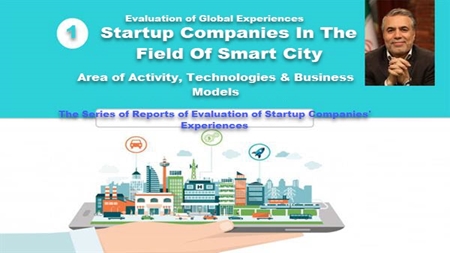Smart City

The secretary of knowledge-based economy and culture-building technologies development headquarter pointed out the publication of books of “evaluation of global experiences of startup companies” and provided insight into the field of automation, asserting: currently, the development of ecosystem for knowledge-based and new companies has been defined as one of the main missions of the Vice-Presidency. Therefore, recognition of challenges on the path of activists of the field in the world can help them grow more dynamically.
Parviz Karami, the editor-in-chief of knowledge-based publications added: “evaluation of global experiences in the field of startup companies, a smart city” is a book published by the efforts of the Vice-Presidency.
Karami mentioned that the book has been published with the goal of presenting the global experiences of startups to develop the ecosystem of innovation and technology in the country. In this regard, he added: a brief summary of the activities and programs of the automation and digital technology development headquarter has been provided at the beginning of the book.
Karami explained other topics covered in the book, marking: smart city has been a growing concept since the end of the 20th century, and developed countries have planned to achieve sustainable urban development and respond to citizens’ needs.
Advisor to the vice president for science and technology affairs stated about the term of smart city: in its simplest form, a smart city is using technology to promote citizens’ well-being, stable urban development and economic enhancement of cities.
Pointing the infrastructural problems that will occur in cities due to the increasing number of people in urban areas by 2050, Karami added: increasing the level of welfare, preserving the environment, optimizing the use of urban resources, and reducing pollution are among the most important goals of cities to prevent the problems of urban population development. To achieve this, smart city implementation is a necessity for the future.
The secretary of knowledge-based economy and culture-building technologies development headquarter talked about the key opportunities and challenges in the field of smart cities, affirming: development and optimization of urban transport and facilitation of access and quality improvement of public vehicles, creation of new solutions with the help of new technologies, increasing air pollution in cities, and creating ways to monitor and reduce harm to citizens are the key challenges and opportunities in the smart city area.
The advisor to the vice president continued: in addition to providing solutions for atomization of cities, we provided a brief introduction on the work of active startups in different fields such as recycling, environment and air pollution, urban transportation automation services, planning services and urban management, and automation of infrastructural network.
Karami mentioned that the automation of cities needs three long steps, declaring: these steps are related to the development of connected infrastructures, development of smart analysis and culture-building programs and promotion of public use. These three steps are properly introduced in the book.
The book of evaluation of global experiences of startup companies in the area of smart city is the first volume of series of books of evaluation of global experiences of startups published by the knowledge-based economy and culture-building technologies development headquarter, Mahdi Mohammadi, Mahdi Kakavand Kordi, Melika Mosleh, and Mahboubeh Saedi. The book is published in 500 copies by the knowledge-based publications.